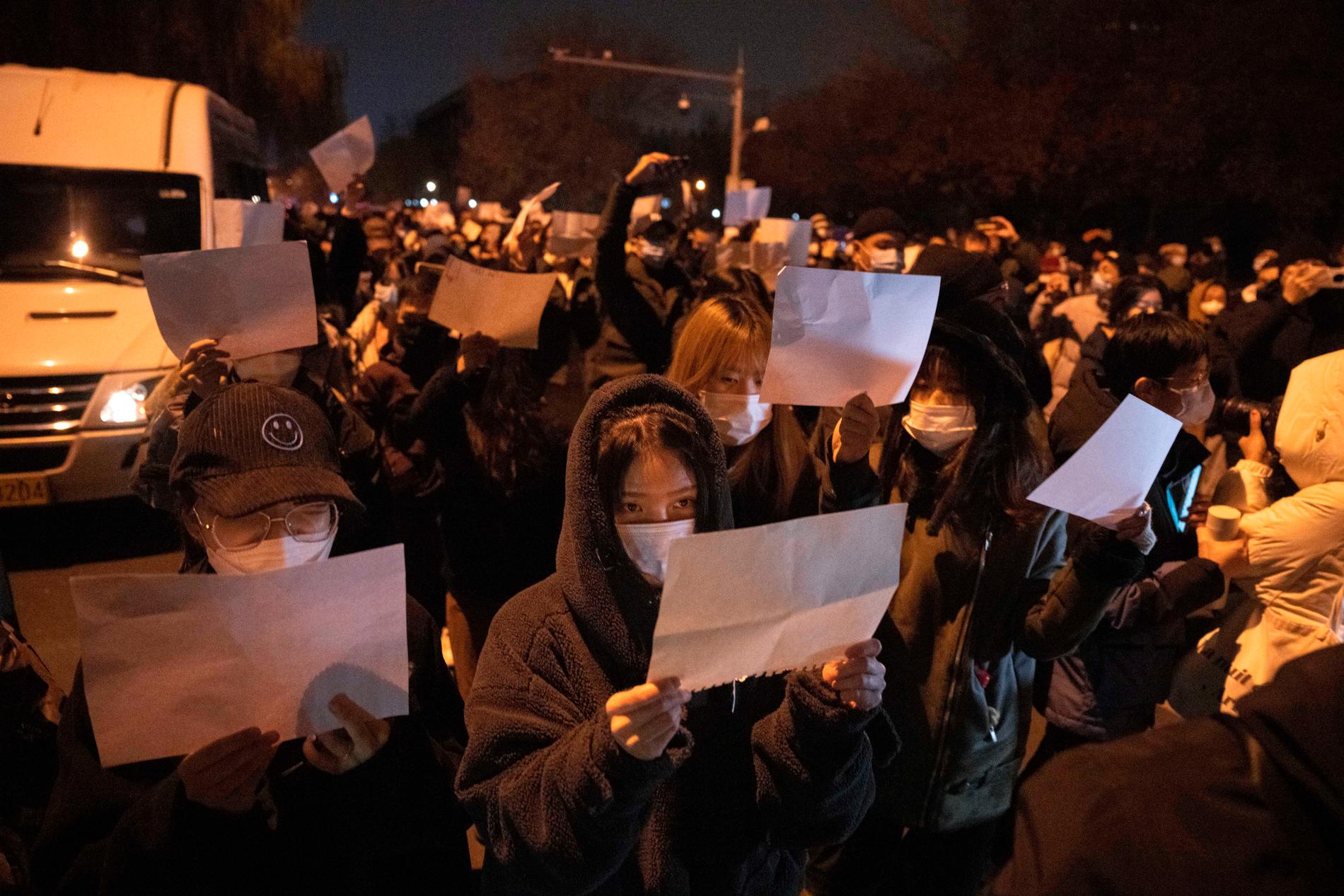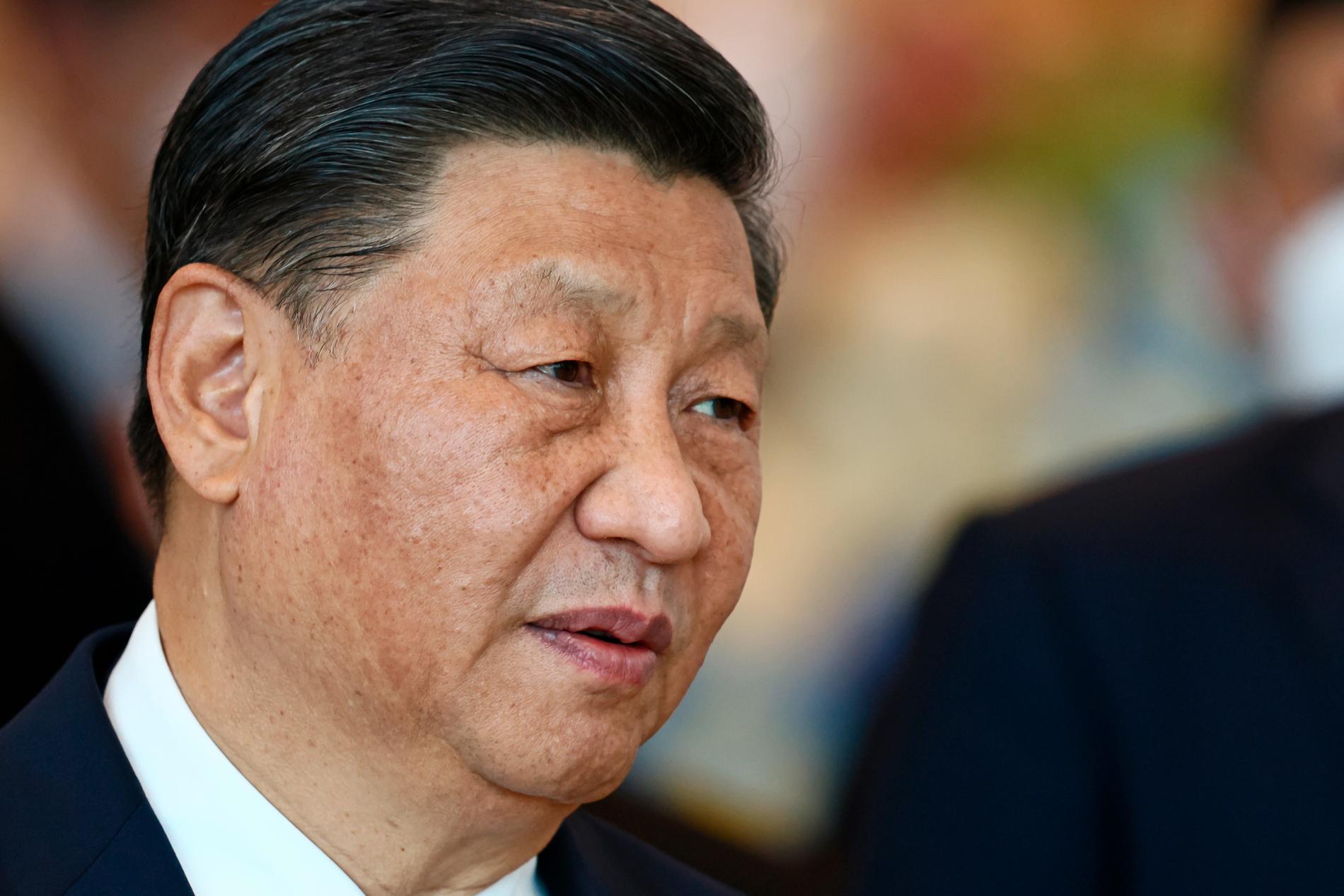Wolfgang Hansson
Published: Less than 1 hour ago
This is a commenting text. Analysis and positions are the writer's.
COLUMNISTS
It's almost like pinching yourself in the arm to understand that it's really true.
Spontaneous protests against the Communist Party in China are certainly not the norm.
This could develop into the biggest challenge for Xi Jinping and the party since the 1989 Tiananmen Square protests.
But it is more likely that any further protests will be cracked down hard to nip the protest movement in the bud. Under Xi Jinping, the thumb screws have been tightened even more and no form of opposition is tolerated.
This is also why this weekend's sometimes violent protests in China have been front-page material around the world. No one could believe that anyone in China would dare to take to the streets and shout slogans to the effect that President Xi Jinping and the Communist Party must resign.
After almost three years of strict covid restrictions, the Chinese are extremely tired of constant covid tests and shutdowns that force them to stay at home for weeks.
Many fear that it will get even worse this winter when new records in the number of covid cases are broken almost daily.
Discontent is brewing throughout the country and in the past week has turned into political protests in a number of cities.
The trigger appears to have been a fire in a residential building in the western Chinese city of Urumqi, although various types of protests have occurred in recent months.

Protest in Beijing on 27 November. Photo: Ng Han Guan/AP
It is reported that ten people burned inside because the fire brigade could not reach the house in time due to the covid restrictions. It is even rumored that the residents of the house were locked up. Something that the authorities claim is not correct.
However, due to the strict censorship, it is impossible to know what is true.
Hope to discourage
The deaths caused the cup to overflow for a number of Chinese. Hundreds or thousands of people, reports vary, took to the streets in places including Shanghai, Beijing and some other of China's largest cities. In Shanghai there were violent confrontations with the police.
Some shouted slogans against Xi and the Communist Party. Others were completely silent and only held up blank white papers as a protest against the harsh censorship.
The consequences will be severe for those caught. Something the regime hopes will serve as a deterrent to others. At the same time as the state media have so far completely covered up the protests.
The decisive factor for the continuation will be how widespread the dissatisfaction is and to what degree the normally obedient Chinese dare to join the protests.
So far, after all, they have been relatively small, although by Chinese standards they may be considered exceptional. One must be careful not to draw too great parallels, but not since the protest movement for more democracy and human rights in China in 1989 have there been any protests against the regime at all. Hong Kong excepted.
That time, the Communist Party sent in tanks and soldiers against the protesters in Tiananmen Square in Beijing. How many were killed has never been fully clarified, but it was several hundred, perhaps over a thousand.
What makes it more dangerous for the Communist Party this time is that the discontent is all over the country. Protests can basically break out anywhere and the risk of spreading is greater than in 1989, even though the demonstrations have been considerably smaller so far.
Low death rates
At the same time, the only thing that unites those who took to the streets is dissatisfaction with the covid policy. There are also demands for increased freedom and democracy in general, but covid comes first.

Chinese President Xi Jinping. Photo: Jack Taylor/AP
While the rest of the world has returned to some semblance of normalcy thanks to widespread immunity and effective vaccines, China has stuck to its zero-tolerance and almost completely closed borders. One reason is that the Chinese vaccines have not proven to be very effective against covid. For reasons of prestige, Xi Jinping has refused to import vaccines from the West.
China has always had a very low covid death toll, at least officially, and in the beginning the zero tolerance was popular because it seemed to save lives while people died by the tens of thousands in other countries.
But when ordinary Chinese, for example during the soccer World Cup, can see how the audience socializes in the stands without face masks, the anger against their own politics grows. Not least because zero tolerance affects the Chinese economy very negatively.
People are getting poorer.
So far, Xi Jinping has refused to ease the covid policy. But the question is how long he dares to continue if a strong dissatisfaction with him personally grows under the surface. In the autumn, he allowed himself to be re-elected by the party for a new 5-year term as president and many believe that his ambition is to serve for life, just like his representative Mao Zedong.
But then he has to somehow rein in the dissatisfaction with the covid policy.
Inga kommentarer:
Skicka en kommentar